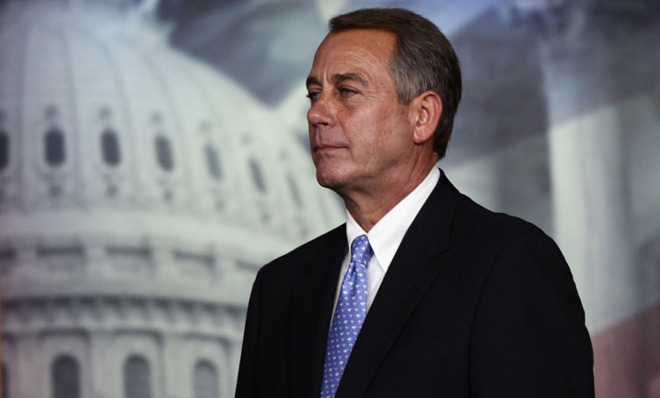How an unemployment myth hurt millions of jobless Americans
No, unemployment insurance does not itself cause unemployment

A free daily email with the biggest news stories of the day – and the best features from TheWeek.com
You are now subscribed
Your newsletter sign-up was successful

Extending benefits to unemployed workers beyond the 26 weeks provided by most states has little effect on the unemployment rate and essentially no impact on labor force participation, a recent working paper released by the Federal Reserve Board found.
That information, while interesting, would have been a whole lot more relevant had it been uncovered nine months earlier.
During the Great Recession and the years that followed, the Federal government regularly passed laws providing money for an extension of state unemployment benefits through a program known as Emergency unemployment Compensation (EUC). For decades it has been common practice for Washington to supplement state unemployment benefits during periods of high unemployment.
The Week
Escape your echo chamber. Get the facts behind the news, plus analysis from multiple perspectives.

Sign up for The Week's Free Newsletters
From our morning news briefing to a weekly Good News Newsletter, get the best of The Week delivered directly to your inbox.
From our morning news briefing to a weekly Good News Newsletter, get the best of The Week delivered directly to your inbox.
In the aftermath of the Great Recession, unemployment remained at high levels for years, and at first, lawmakers continued renewing the extension of benefits. However, House Republicans blocked an extension of benefits beyond the end of 2013. House Speaker John Boehner refused to vote on a bipartisan extension passed by the Senate and did not allow extension bills introduced by House Republicans to come to the floor.
While far from the only Republican objection to an extension of unemployment benefits, one of the primary arguments was that the very existence of unemployment insurance itself was part of what caused unemployment. Despite the fact that there were as many as three jobseekers in the U.S. for every open position, Republicans commonly argued that if only unemployment benefits were cut, people would go out and find work.
The recent study by Regis Barnichon of the Centre de Recerca en Economia Internacional in Barcelona and Andrew Figura of the Federal Reserve Board, finds that the impact of extended benefits on unemployment is quite small — on the order of one-third of one percent — and that it has no discernible effect on labor force participation rates.
To be sure, the study did find that the benefits extension (which they refer to as Emergency and Extended unemployment Benefits, or EEB) increased levels of unemployment. But the small size of the increase, given the high levels of unemployment in the country during the time in question, argues against the wisdom of wholesale benefits cuts.
A free daily email with the biggest news stories of the day – and the best features from TheWeek.com
"We estimate that [EEB] had non-negligible effects on the unemployment rate in recent years," the authors write about the benefits extension. "At the same time, because EEB has very little effect on the behavior of the relatively large share of individuals who are at the beginning of their unemployment spells, the overall effect of EEB on the unemployment rate is fairly modest; at its peak (in terms of the average number of benefit weeks provided) EEB boosted the unemployment rate by one-third percentage point."
Further, they determined that "the effect of EEB on the [labor] participation rate is estimated to have been quite small."
None of this is likely to provide comfort to the several million workers whose benefits were cut by half or more because of Congress’s failure to renew the EUC program at the beginning of the year.
More from The Fiscal Times...
-
 How the FCC’s ‘equal time’ rule works
How the FCC’s ‘equal time’ rule worksIn the Spotlight The law is at the heart of the Colbert-CBS conflict
-
 What is the endgame in the DHS shutdown?
What is the endgame in the DHS shutdown?Today’s Big Question Democrats want to rein in ICE’s immigration crackdown
-
 ‘Poor time management isn’t just an inconvenience’
‘Poor time management isn’t just an inconvenience’Instant Opinion Opinion, comment and editorials of the day